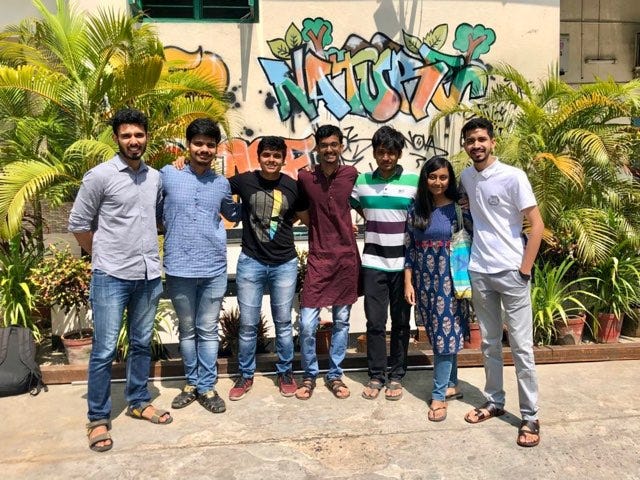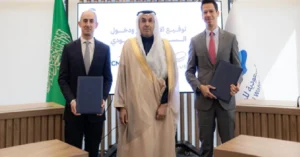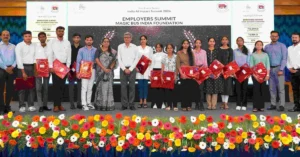▸ A Conversation with Parth Gala, Social Entrepreneur
While I’ve written in the past about avenues to dive into the social impact space after undergrad, some young people are committed and enterprising enough to work in the social sector alongside pursuing their degrees. One such group of fearless leaders is the team of students from colleges across India who have launched the Indian Financial Literacy Initiative (IFLI).
I had the opportunity to speak with Parth Gala, the founder of the organization, about what he’s learned by launching an initiative dedicated to improving financial literacy around the country.
What gave you the idea to start IFLI?
“The story behind starting IFLI is a very personal one. While I live in Mumbai, I come from the Kutchi community, which is a subsect of the larger Gujarati community, hailing from the state of Gujarat in India,” Parth shared. “This community has a very innovative internal investment banking system because of which over the past hundreds of years, almost all Kutchi businessmen have received any funding they need for their business from within the community itself. However, in 2019, there was a default of over 4,000 crores in this system leading to the ultimate disintegration of this whole structure. My family was one of the ones that lost a lot of money, and I personally witnessed how much stress my father had to undergo. Many other families lost their entire savings to this crisis, since they did not diversify the holdings placing their trust on this system and the fellow members of their community.”
He went on, “These circumstances encouraged me to do something about the issue of good financial planning. I started to learn finance myself and began to devour all the information I could find in books and online — I wanted to learn everything I could about finance and not repeat the mistakes made by my family. Based on what I learned, I compiled a beginners’ finance curriculum, “Finance 101,” designed to be a holistic guide to the basic principles of finance for those who aren’t as familiar with the field.”
“I felt that merely writing this book and keeping this guide to myself was not enough, and I wanted to do something to help those more vulnerable than my family and me from making these mistakes. Jack Ma’s words echoed in my mind: ‘There are people less qualified than you, doing things you want to do, simply because they decided to take action.’”
“I conducted my first community financial literacy session in my village in Kutch, the place that I think of as the root of this movement. It felt like something the community was excited about and saw as beneficial, so I reached out to a number of my friends from college and high school and floated the idea of starting a social initiative. Together, we formed the initial core team of IFLI.”
After successfully conducting numerous sessions that will reach 60,000 community members in Mumbai and Kolkata, IFLI’s new goal is to spread financial literacy across India — to empower as many families as possible to make informed financial decisions that support them to become more financially secure.
How is your social enterprise structured?
“We offer a 9-hour course online based on the Finance 101 curriculum, and the proceeds allow us to fund our community workshops,” Parth explained. “Virtually all of the proceeds are currently being used to sponsor our community outreach — as of now, our goal isn’t to make big bucks; it’s to roll this methodology out to as many community members as possible. One of our members succinctly summarized our mission by asking the question, ‘Would you rather reach one crore people or make one lakh rupees?’ The answer will always be to reach the one crore people; the money is just a means to an end. We hope that this model will allow us to be sustainable over the long term, and we’re hoping not to have to rely on donations or grants.”
“Moreover, taking the Finance 101 course has inspired many of our peers to become volunteers. The course gives the students a holistic understanding of finance from money management, investing, banking, stock markets, corporate law, and cryptocurrency — and equips students who want to be trainers with the streamlined knowledge based that they need to become one of our community volunteers.”
How has the community’s response been to your work so far?
“We’ve been so excited to work with small groups of women from vulnerable communities across Mumbai, and a group of 100 community leaders in West Bengal so far. It’s always so engaging when the community shares that what we are bringing them is useful to their lives. In Vile Parle in Mumbai, we had a woman say at the end of one of our sessions, ‘Usually, no one thinks this information is important for women. We are so grateful that you started with us. When a woman knows more about the financial decisions she’s making, you can be sure that her child is going to have a better life.’ Moments like that keep us going.”
What do you think makes you an impactful team?

“The ethos of our organisation is around creating social good and impacting as many people as we can. Most of our team members are friends and classmates, so our differences usually take the form of healthy debates around our common goal — maximizing the impact our organization is able to make. Each and every member is inspired right now to create a pan-India organization that transforms the lives of marginalized Indians through financial literacy, to put their families on the path to financial success.”
What is the biggest challenge you’ve faced so far?
“The biggest challenge so far has been finding community-based nonprofits NGOs to collaborate with,” Parth shared. “This has made me repeatedly question our model and experiment with new ideas. Our original model was to reach out to NGOs who would connect us to the communities they work with; now, we are reaching out to communities directly, with guidance from local NGOs who know the communities well.”
He continued, “On a personal level, I am also learning a lot about management: how important it is to think through the optimal organizational structure from the start, what it looks like to delegate within a small team rather than holding everything myself, and how to manage my time as effectively as possible. I am learning all I can about management through this endeavour, and I have faith that we’ll be able to establish an effective and impactful organization that will survive long after us. I have promises to keep and miles to go before I sleep.”
What are your plans for IFLI after you graduate?
“We are trying to create an organization that is self-sustaining and can continue even if we do not play a major role in it. This is why we hope to equip community members whom we train with the skills and knowledge they need to spread our curriculum throughout their communities,” Parth said.
“On a personal note, I intend to continue leading IFLI even after university, even if not as the CEO. I have been able to effectively handle the workload of IFLI alongside my law degree, and I hope to be involved even once I start working full-time. I will always have a very soft spot for the organization in my heart. IFLI is my baby and I intend to be in its life permanently!”
What advice do you have for other young people looking to create a social impact organization?
“Once you’ve launched, running the organization is going to take a lot of your time — so you need to make sure you connect genuinely with the cause, and it’s not something you’re doing to build your résumé. I am a young entrepreneur myself and have a long way to go. But from my experience, what I feel is most important is cultivating enthusiastic team members who will support and inspire you when you are down— and who are just as motivated towards the cause as you are.”
“I would suggest that you first work or volunteer with an organization in the social sector to gain exposure to different ways you might structure and raise funds for your initiative or campaign.
“And remember, the first step is to start. Don’t wait for the ‘right’ time, because it’s never going to be the right time. The pilot phase is crucial: go out and test-drive the model you intend to use.”
“Once you actually interact with your ‘end user’ and hear their response to how your work improved their life, your drive to create will be reinvigorated – seeing an improvement in the lives of the people you serve will push you to work harder.”
The determination and persistence of Parth’s team inspire me personally. I’ve had the opportunity to see their work up close during a visit they conducted with one of Aangan Trust’s community safety groups in Mumbai. The community leaders present in Bhajiwadi that day shared that although other nonprofits and agencies had visited them before to explain investment schemes the women should know about, no other organization else quite took the time to make sure they understood the information with such patience and answered their questions so conscientiously. I got to listen in on the IFLI team’s post-session debrief, and these young leaders were focused on rigour – from the small tweaks they could make to do more demographic-specific research on financial linkages to how they could hone their soft skills to be more culturally conscious. Given the level of impact they have already made as a young organization comprised of full-time college students, I am filled with optimism at the lives they will change through as the organization grows, fueled by their passion.
The author of the article is a contributor to LAFFAZ and this article was originally published on the author’s primary publication channel.





